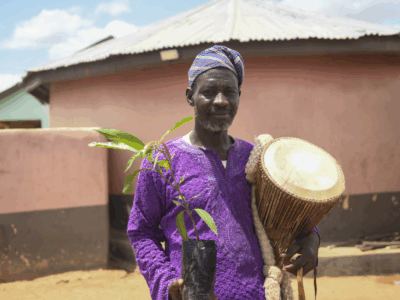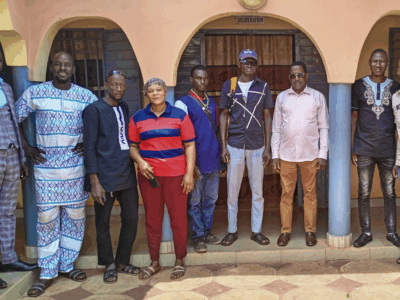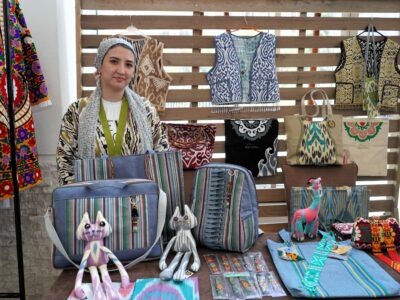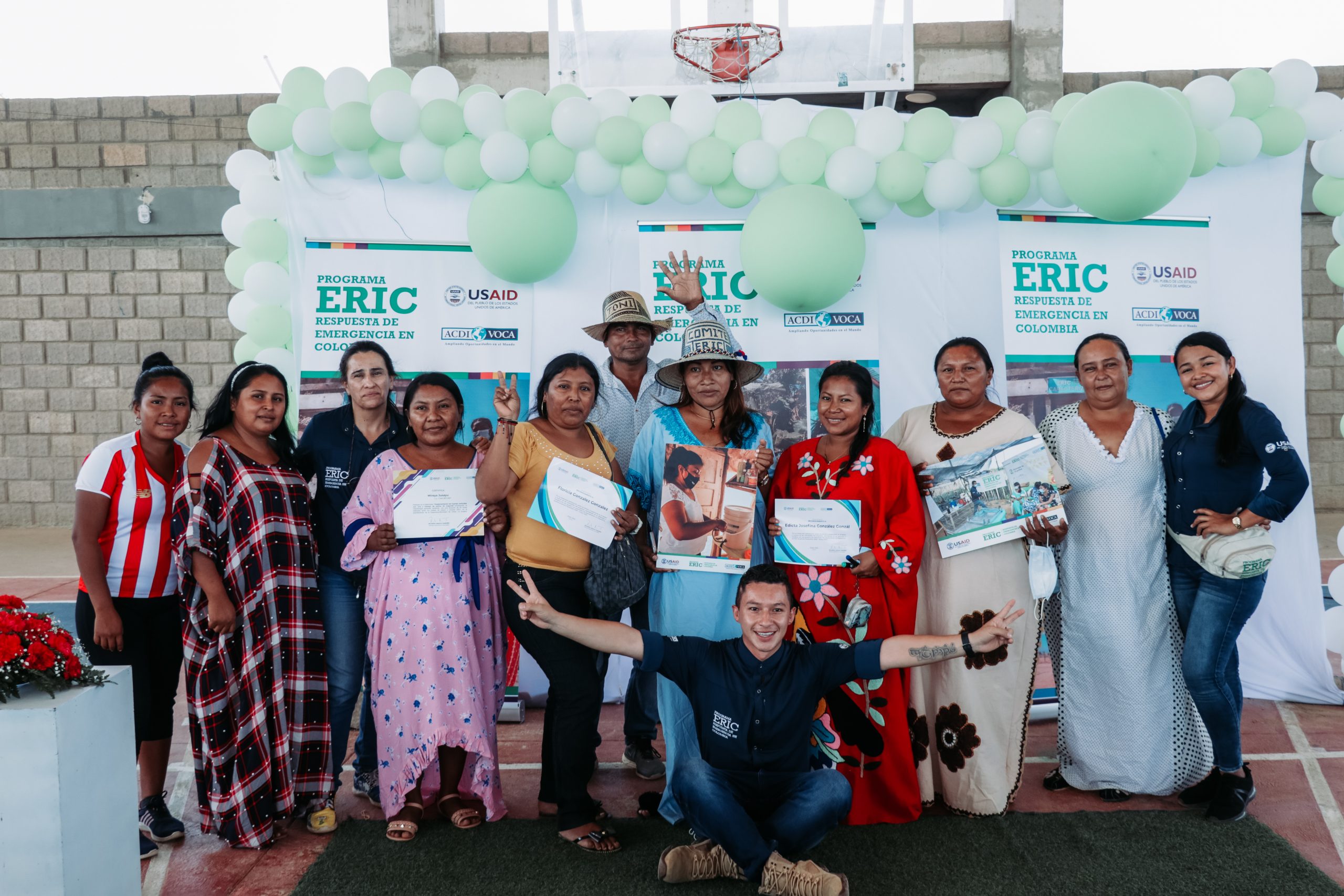
In January 2022, ACDI/VOCA completed Emergency Response in Colombia (ERIC), a program funded by USAID’s Bureau of Humanitatian Assistance, in Uribia, a town located in La Guajira, which is home to the binational Wayuu indigenous community. Because of their desert location, proximity to the Venezuelan border, and the COVID-19 pandemic, Uribia’s residents face a triple threat: (1) a lack of access to clean water, (2) impacts of the migration crisis, and (3) a public health emergency.
In recent years, migration and internal displacement have caused the formation of informal settlements such as La Esperanza. La Esperanza is a former illegal garbage dump where 9,178 people now reside in more than 1,675 households.
For the past year, ERIC has been working with 530 families from La Esperanza to improve their food security and the water, sanitation, and hygiene (WASH) conditions within their households. Venezuelans and Colombian returnees account for 60 percent of ERIC’s participants, while the other 40 percent are from the host population. Through small group workshops, personalized technical assistance, and individual psychosocial support, ERIC participants have cultivated home gardens, healthy habits, and dreams for their futures.
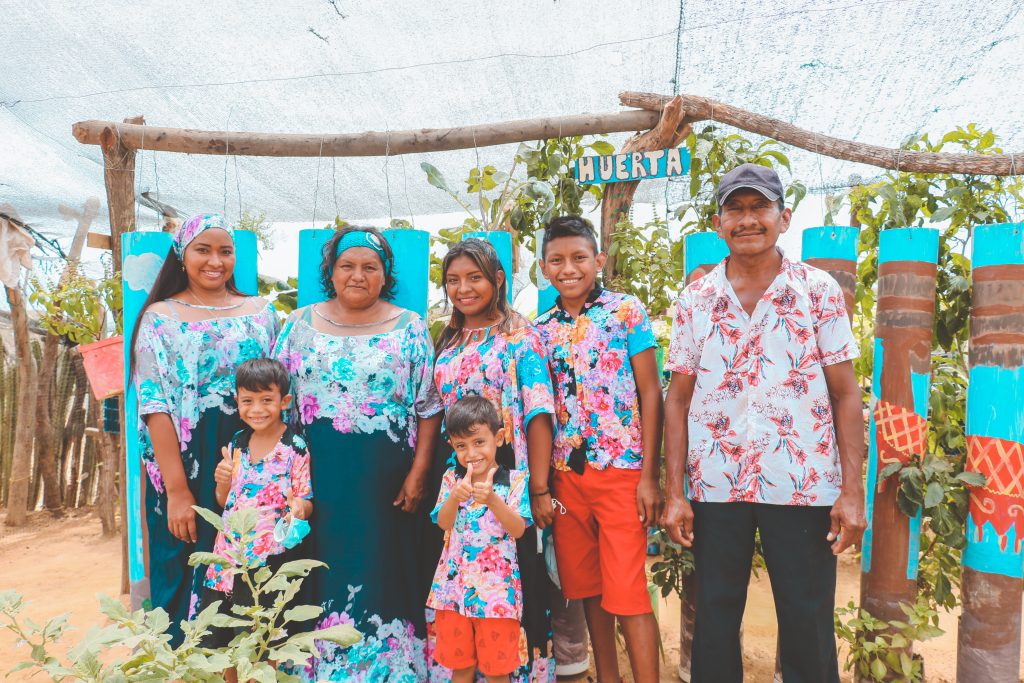
Food Security
When ERIC first started working in La Esperanza, many families made their living from informal services, like driving bicycle taxis, which are often poorly paid and without benefits. A year later, ERIC participants are making more than 50 percent of their earnings from agricultural or livestock activities, prompting increases in household incomes and overall food security.
Home Gardens
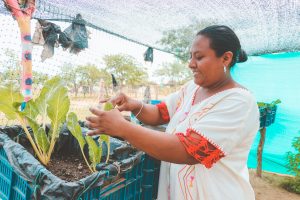
Families with home gardens consume about 91 percent of what they produce, while the remaining 9 percent, or roughly US$1,169, is sold for income.
One hundred and fifty families established and maintained vertical home gardens where they are growing more than 20 varieties of fruits and vegetables, such as lettuce, pumpkins, melons, chives, and cilantro. Each household produced an average of 5,762 kilograms of food, representing nearly US$10,000 in value.
To provide shade, ERIC participants planted 1,060 trees throughout all 530 homes. Despite living in a rugged, desert territory devoid of vegetation cover, the families have successfully sustained the trees — some now measuring six and a half feet tall. These successes are due largely to the use of compost, which the families learned to make using organic waste generated in their households.
“There are families that didn’t have 200 pesos to buy a stalk of green onion. Now they can just pluck one out of their gardens. What’s never been seen before in La Guajira–carrots, peppers, cucumbers–with effort, they’re growing it. We showed that if you can grow these things here in the desert, it can be done anywhere.”
–Ruder Van Grieken, ERIC food security technical specialist
Chicken Raising
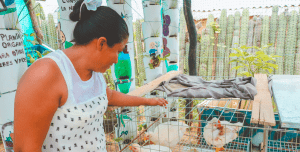
The broilers, when at their optimal weight, represented a value of US$22,356, of which US$6,383-worth was for self-consumption and US$15,972-worth was for sale.
ERIC also distributed 4,500 broiler chickens to 151 households, who were then trained in proper care and raising techniques. Though the brioler chickens were intended for self-consumption to boost food security levels, many families set aside part of their production for sale and used their earnings to purchase and raise more chickens. This demonstrates a productive and sustainable cycle that guarantees protein on the table and income for other pursuits.
Water, Sanitation, and Hygiene
ERIC engaged all 530 families in improving their WASH practices, from filtering water to handwashing before and after activities like handling food or going to the bathroom. ERIC provided each family with a 150-liter water storage tank and filtration system. This alone contributed to a 36 percent decrease in stomach and digestive discomfort. Families feel a sense of security knowing that they have water, and it is safe to drink.
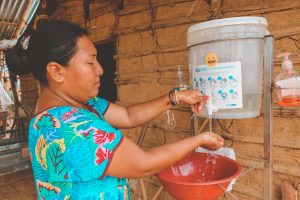
Ninety-six percent of families started using soap and water to wash their hands, compared to just 25 percent when the progarm began.
“They provide us with all the sanitation tools and training from hand washing to the water we drink and even the air we breath. . . . It’s not just about receiving benefits, they also provide us with knowledge. They have taught us a sense of belonging and how to earn things for ourselves.”
–Yoleida del carmen Fernández González, La esperanza community member
Handwashing
ERIC worked with all family members to improve their daily handwashing habits. During these workshops, Colombia experienced its third peak of the COVID-19 pandemic, and the infection rate in Uribia was extremely high. Families expressed gratitude for the protection the workshops and these new habits provided their community.
Waste Management and Clean Water
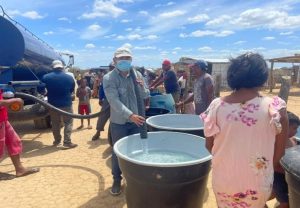
ERIC worked with a company to coordinate monthly water distribution for 320 households in need, a commitment that stands following ERIC’s completion.
ERIC achieved significant changes in the way households dispose of garbage, especially in terms of recycling. Ninety-seven percent of households now properly disposing of solid waste, and 64 percent of households now recycle, compared to just 1 percent prior. During a two-day environmental cleanup, 122 participants collected 95 tons of garbage, which created noticeable physical changes in their settlement and motivated residents to adopt a culture of proper waste disposal.
ERIC successfully negotiated a permanent pickup schedule with the municipality’s water and sewage company to guarantee the removal of waste in the future.
Community Leadership for Sustainability
A team of food security monitors, selected by their peers, take turns sowing, replanting, cleaning, and irrigating the demonstration gardens. Participants also elected 27 representatives to serve on a WASH committee, supporting logistics and activities like tree planting days and water deliveries. Both the monitors and committee members were chosen for their empathy, leadership, and connection with their peers.
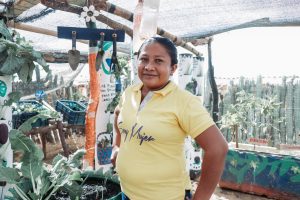
Families raising chickens independently formed their own committee to facilitate sales going forward.
“In the program, we assume responsibilities. We didn’t think that it would have this big of an impact. In the time that we’ve been here, we have seen organizations that come, make a delivery, and leave. They don’t know if those families are developing socially. With ERIC, the objectives is to improve our quality of life.”
–Vicente Jesús González Fernández, la esperanza community member
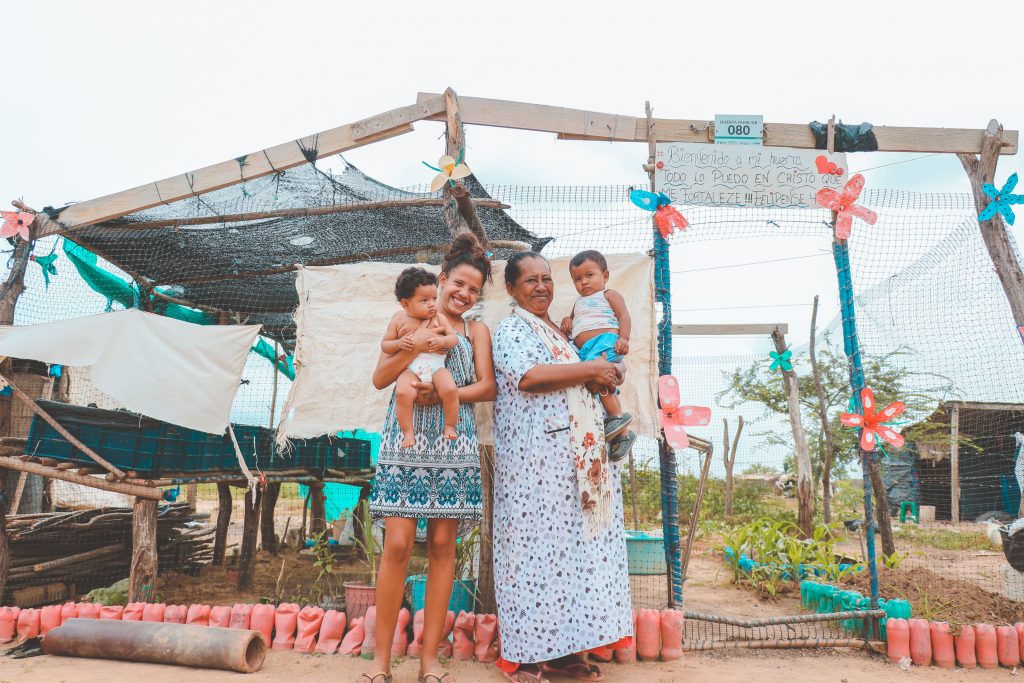
With home gardens and broiler chickens, families increased their consumption of vegetables and protein by 90 percent, contributing to more healthy and balanced diets.
ERIC projects that an outstanding 97 percent of households in the area will achieve self-sufficiency for at least six months. However, the passion and commitment of participants indicates that time period may be much longer. In just one year, ERIC left a significant mark on La Esperanza, reaching 5,126 direct and indirect participants from 958 households. These families have transformed La Esperanza into a united community, dotted with flowering gardens that represent a new life of hope and opportunity. And, while ERIC may be closing, they are more committed than ever to building on the successes of this year for themselves, their children, and generations to come.
Learn more about Emergency Response in Colombia.
Learn more about our work in Colombia.
Watch ERIC’s closing video in Spanish.

